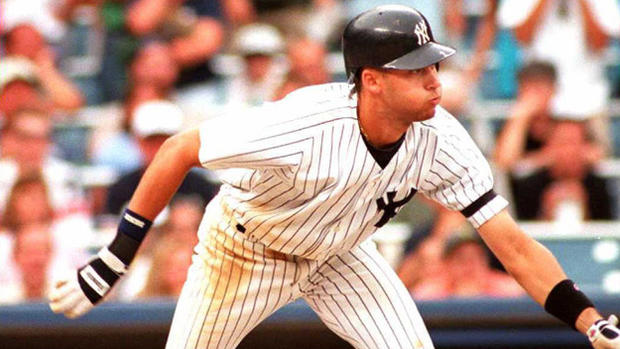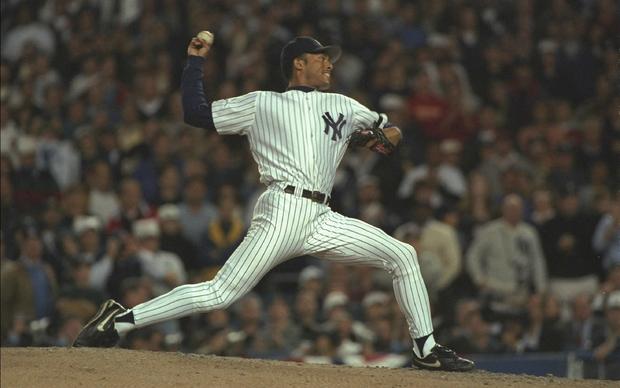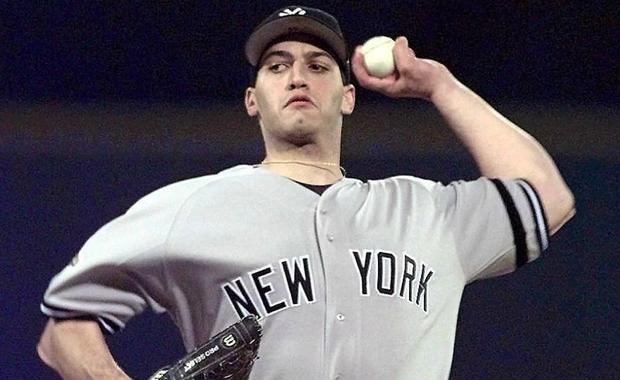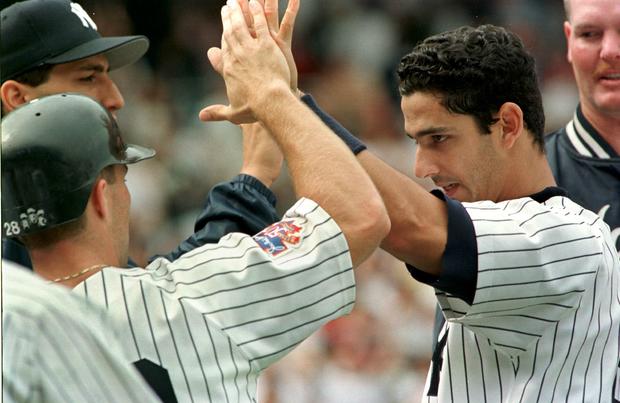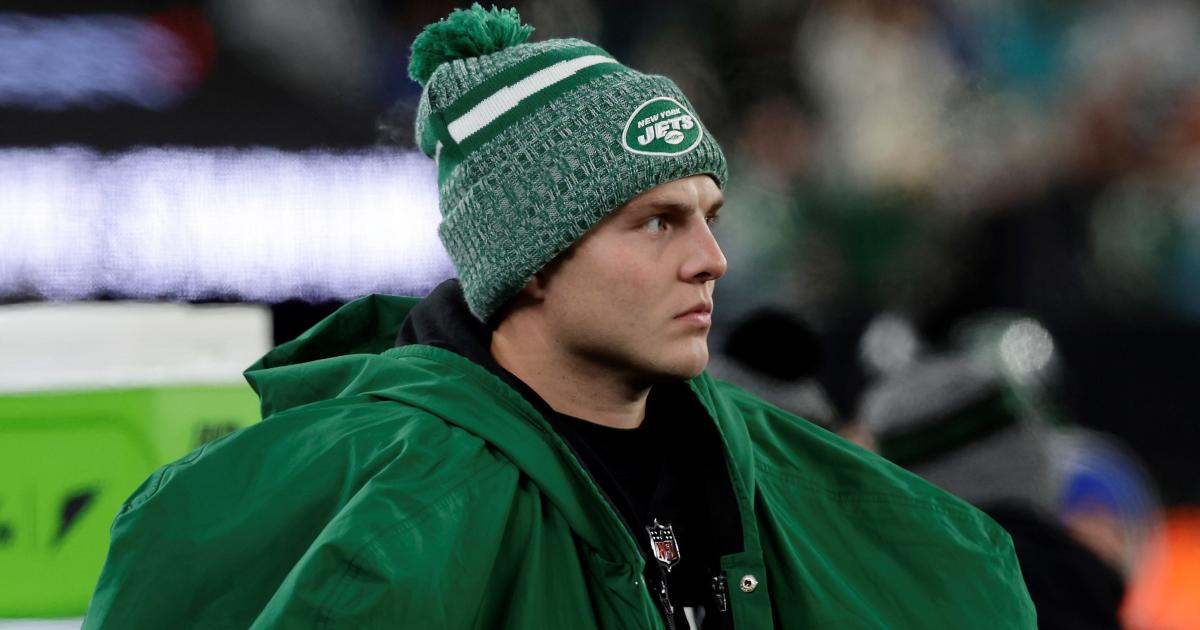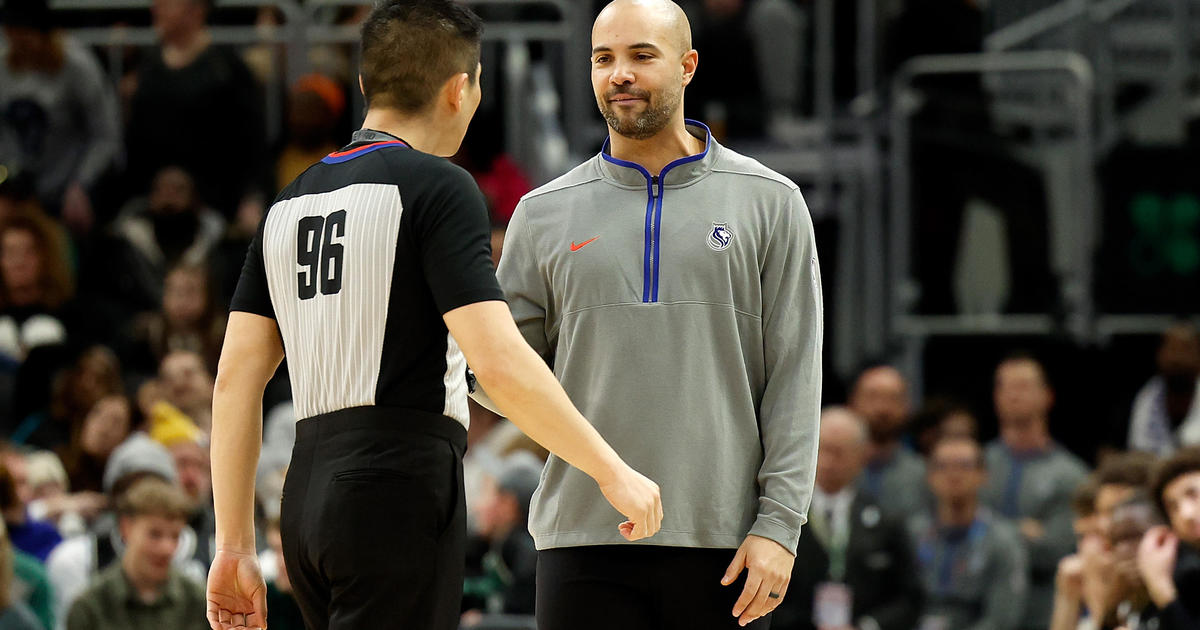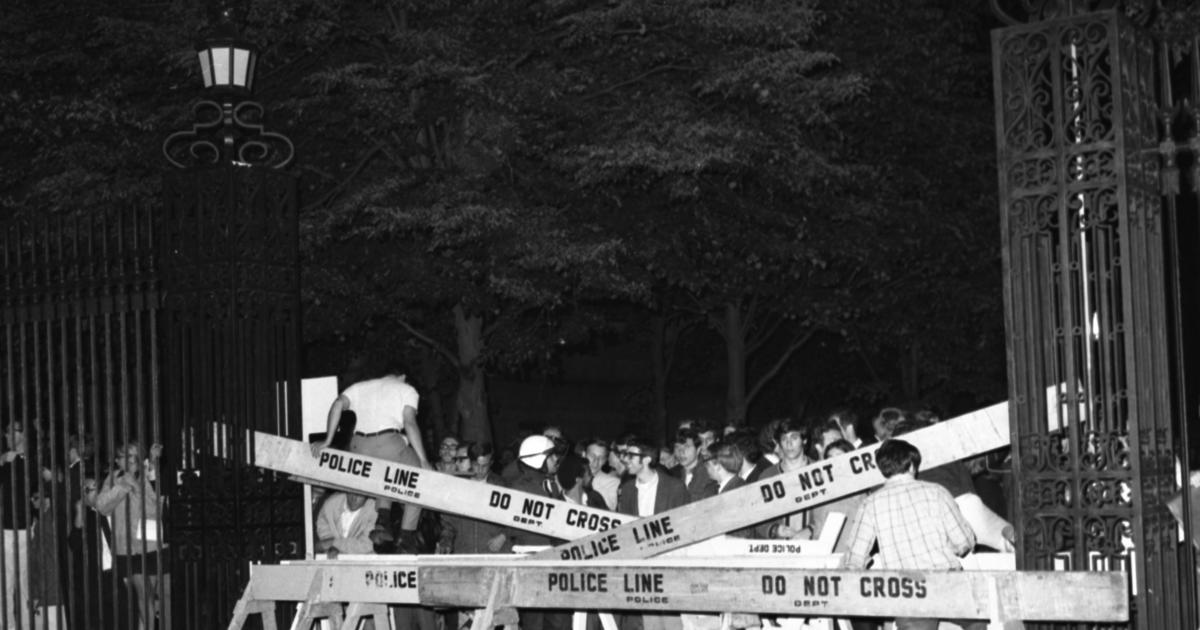Remembering The 1996 Yankees: Core Was Truly A Fantastic 4
By Jason Keidel
» More Columns
Perhaps no sport has a more lyrical bond with famous quartets than pro football.
The Fearsome Foursome. The Purple People Eaters. The Steel Curtain.
But other than the 1974 Pittsburgh Steelers, who bagged four Hall of Famers in a single draft, perhaps the most iconic quartet in history played for the most famous team in the history of team sports.
So it was with four young men who arrived in the Bronx in 1995 that the Yankees used to build a budding dynasty in 1996. Four nascent careers making it into national stardom.
In the history of our pastime, it's hard to recall a confluence of timing and talent like that of the Yankees' iconic Core Four, spawned by the most celebrated franchise in American history.
Even by the Yankees' opulent history, the arrival of Derek Jeter, Mariano Rivera, Andy Pettitte, and Jorge Posada was exceptional. Maybe half of the royal quartet will find their busts bronzed in Cooperstown, but there's no denying the impact of each local, baseball prince.
And they not only helped a good team become a great team, they fueled the pinstripe mythology. The Core Four made us feel that donning the Yankees uniform, much like the helmets of Notre Dame or the Dallas Cowboys, imbued players not only with athletic splendor, but also biblical virtue.
We could spend weeks listing all their high deeds under brown leaves. And while it would be redundant to parse all their particulars, you can't breeze by their benchmarks without making a few, statistical pit stops.
Derek Jeter, of course, was the cover boy, the slick and savvy shortstop who seemed born for the Bronx. There was no learning curve for No. 2, who soon became No. 1 in the standings and standing among New Yorkers.
Jeter was so innately clutch he restored the preteen notion of the superhero, turning otherwise lucid adults into his own, boy-crushing congregation.
Jeter was, well Jeter. It would take 10 pages to list all his accomplishments. And while he was sometimes chided for his sleepy equanimity and milquetoast persona toward the media, no one played harder or rose to the moment like the Yankees captain.
And no one summoned the old-world ethos or played with the hard-hat ethic like Jeter, whose rare injuries only occurred on the diamond, often while making superb plays. He shredded his shoulder sliding into third base, banged his face in the stands after snaring a foul ball, and snapped his ankle while doing his classic, leaping pirouette while throwing to first base in the ALCS. Yours truly sat 10 rows away on that sultry July night in 2004, when he crashed into the stands while snaring a foul ball against the Red Sox.
While no single moment could define an indefatigable player with such a transcendent resume, perhaps two moments became singular bookmarks in his uber-clutch career.
First was his spellbinding flip to Posada in the 2001 ALDS against the Oakland A's. In order to preserve a perilous, one-run lead in a series they trailed 2-0, Jeter somehow had the wherewithal to run, snag, and flip a bouncing throw from right field, landing it softly into Posada's glove. The catcher then spun and tagged Jeremy Giambi a nanosecond before he stepped on home plate. It saved the game and, ultimately, the series, part of a fairytale ride toward another appearance in the Fall Classic.
The other came on a sun-splashed summer day in 2011 against Tampa Bay. Entering the game with 2,998 hits, Jeter got his 3,000th by banging a home run to left center against David Price, adding to his soaring legacy. Adding to his sense of theater, Jeter hadn't hit a homer at Yankee Stadium in nearly a year.
If that weren't enough, he had five hits in five at-bats for the day, his first five-hit day in four years.
Perhaps no player in Yankees or baseball history was more keenly tethered to the moment than Jeter, who somehow hurdled every baseball, personal, or cultural moment hurled his way in the media fishbowl of NYC. Few, if any, players in history had Jeter's gift for basking in Broadway's glow without burning in its glare.
Though he was not someone bound by statistics, it's hard to ignore Jeter's sprawling bio. For the longest time, the Yankees had the odd distinction of holding almost every essential record sans a single batter with 3,000 hits. Jeter took care of that.
Jeter is the only player to win All-Star and and World Series MVP awards in the same season. He played more games than any Yankee in history. He's also the only player to notch 3,000 hits entirely at shortstop, and is the only player who spent his entire career in the Big Apple to do so. And of course, he helped ignite the '90s dynasty by batting .314 in 1996, winning AL Rookie of the Year.
But for all of Jeter's physical and historical splendor, he wasn't even the best player in the bunch.
That handle, of course, belongs to Mariano Rivera, the pitcher nonpareil who, fittingly, was the last player to wear No. 42.
Anywhere.
It's almost insulting to define the immortal Mariano by numbers. But his were so exquisite we would be criminally remiss to ignore them.
Though he landed like a missile in 1996 as a setup man for John Wetteland, striking out 130 in 107 2/3 innings, finishing third in the AL Cy Young voting, Rivera ended his career as easily the greatest closer or relief pitcher ever. And while there are debates about the best at any position, Rivera left with a laughable lead at his.
Rivera retired with 652 saves, galaxies ahead of the field. The laconic, iconic pitcher had 15 consecutive seasons in which he recorded at least 25 saves. He was a 13-time All-Star and just the 15th pitcher in history to make 1,000 appearances.
And while the entire Core Four is known for getting hot when the weather turned cold, no one in MLB history had more scalding autumns than Rivera.
Among his spellbinding numbers, Rivera left the game with 42 postseason saves and a 0.71 ERA -- just let those Twilight Zone numbers roll off the tongue. An ardently religious man, Rivera channeled the baseball gods every October, and somehow pitched a dead ball in the live ball era. Rivera's signature cut fastball often broke bats just above the hands, leaving bewildered batters trotting back to the dugouts with a splintered knob in their fist.
Though he was known for his twisting, blazing heater, Rivera was the ultimate cooling agent on a team with titanic egos. He managed to keep his Christian aura without preaching or breaching the goofy, clubhouse playground. Rivera was as kind to the janitor as he was to George Steinbrenner.
Indeed, I once asked for a 10-minute chat with the best pitcher in baseball by his locker, and instead got a spellbinding hour inside the Yankees' dugout -- a treatise on pitching, spirituality, and kindness. By the time we were done, I forgot why I was there. Though we were born one month apart, I left feeling like his son. If Mariano Rivera seemed too good to be true, that's probably because he was.
Which leads us to Andy Pettitte, another essential cog in the Core Four.
An otherwise relaxed man, with soft, southern charm and the aw-shucks refrain of Eli Manning, Pettitte was a singularly focused beast on the mound, well known for scowling at the catcher through that slit between his glove and the brim of his cap.
A baseball version of Jekyll and Hyde, Pettitte seemed to flip an internal switch every October. The bigger the game, the bigger his game. The southpaw's 19 victories in the postseason are the most in MLB history.
And few Yankees fans will dispute Pettitte's singular mound moment and official portal into pinstripe immortality came during that magical 1996, season, fittingly, in the postseason.
Tied with the Braves heading into Game 5 of the '96 World Series, Pettitte out-dueled postseason stalwart John Smoltz for 8 1/3 innings on the way to a classic 1-0 win.
Close your eyes and you can still see Paul O'Neill's galloping grab at the right field wall to seal the victory, stunning and silencing nearly 52,000 fans, all of whom thought the World Series returned to Atlanta for a coronation, not the humiliation of belching a two-game series lead that would be sent back to the Bronx, the ancestral home of World Series hardware. Pettitte's 1996 postseason capped a sublime regular season, in which he posted a 21-8 record, finishing second in the Cy Young voting.
In a most awkward move, Pettitte left for Houston for three years, pitching for the Astros from 2004 through 2006. But, as if called by the ghosts of his only true baseball home, Pettitte ended his career in pinstripes.
Pettitte's back-to-the-future season came in 2010, when he went 11-3 with a 3.28 ERA. An injury derailed the second half of his season, but not before he made the All-Star team, at the delicate age of 38.
Which leads us to the fourth spoke in Core Four wheel.
Perhaps Jorge Posada made the softest landing on the diamond. The fiery catcher jousted for playing time with teammate and future boss, Joe Girardi, before assuming the spot full-time just in-time to ride the carpet of the '98 juggernaut.
While Posada may be the least decorated, he was certainly the most animated. Cut from the old-school cloth of his predecessors behind home plate, Posada was as good at the plate as nearly any catcher in the sport.
Posada may not have been an essential member of the '96 club, but he more than made his presence felt in the Joe Torre behemoth, winning five Silver Slugger awards and making five All-Star teams.
Posada is only the fifth catcher in MLB history with at least 1,500 hits, 350 doubles, 275 home runs, and 1,000 RBI. He's the only catcher in history to hit .330 with at least 40 doubles, 20 homers, and 90 RBI in a single season.
In 2007, the 35-year-old Posada defied logic and Father Time, by batting .338 with 20 HR and 90 RBI, and finishing sixth in the AL MVP voting.
On a franchise littered with legendary catchers, Posada still distinguished himself. Once in a while, his combative style made for awkward moments, like his tete-a-tete with Pedro Martinez, or the time he asked out of a game against the same Red Sox.
But all of that was triggered by fierce loyalty and voracious dedication to his teammates, which spawned the famous chant of "Hip-Hip, Jorge!" from the stands. And still, few Yankees' catchers were as decorated as No. 20.
Other than Yogi Berra, Posada is the only pinstriped backstop to swat 30 homers in a season. He also ranks just behind Berra in career homers. Posada is first among Yankees catchers in career doubles, walks, and intentional walks.
Perhaps Posada is not the most celebrated Yankee in history, but he could be the most underrated.
One white, one black, and two hispanic males could not better represent the melting pot of NYC, or nestle more nicely into the arms of Lady Liberty. The players, their personas, or personalities could not be more varied, from the low-key regularity of Pettitte to the ornery, mama-bear fire of Posada.
But like the many dynasties before them, the 1996 Yankees, and particularly the Core Four, checked their egos, paychecks, and personalities at the clubhouse door before adding layers to the team's layered history under George Steinbrenner, the last great teams under the orbit of the Boss.
They played so hard and lived so right, that it was hard for even the most ardent haters to hate on those Yankees. Indeed, if you were a sports radio devotee, it was nothing to hear some anonymous fan from New England call in to bash the Bombers with the "Man, it's hard to hate on Derek Jeter, but..." preamble.
The same could be said of Jorge Posada, Mariano Rivera, and Andy Pettitte. All three round out the Core Four -- the most iconic quartet in baseball history. Proof that you don't need a Marvel Comic to marvel at a Fantastic Four.
For more coverage of the 1996 Yankees celebration, please click here.
Follow Jason on Twitter at @JasonKeidel
